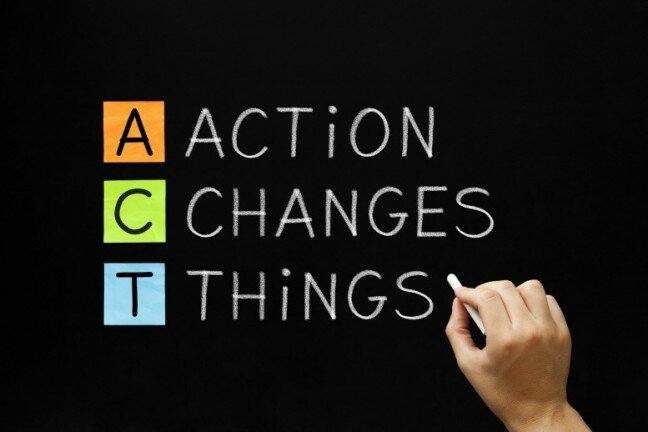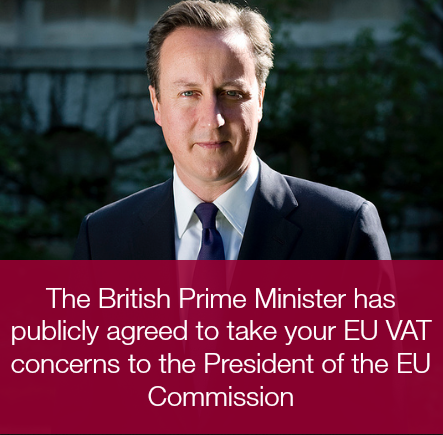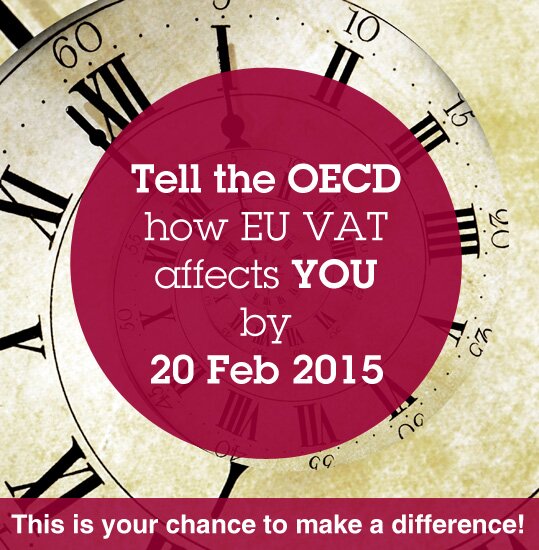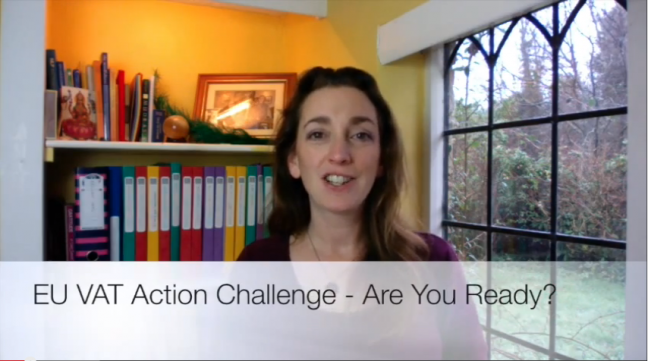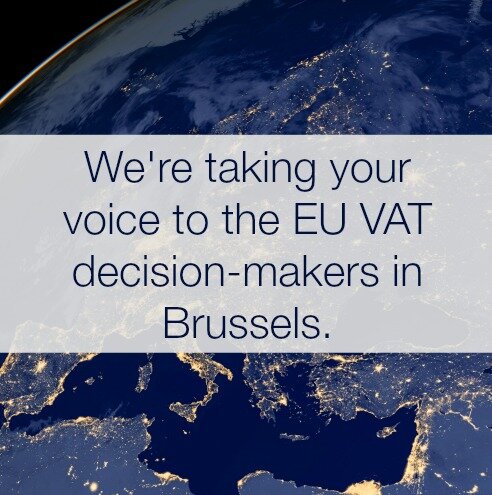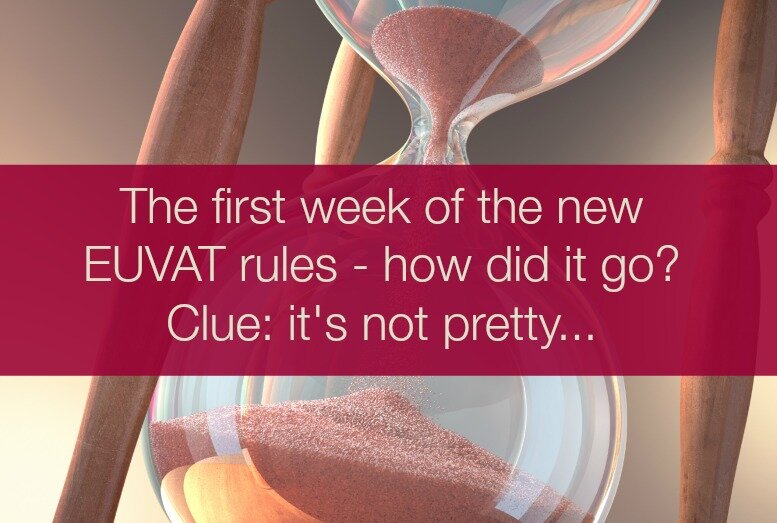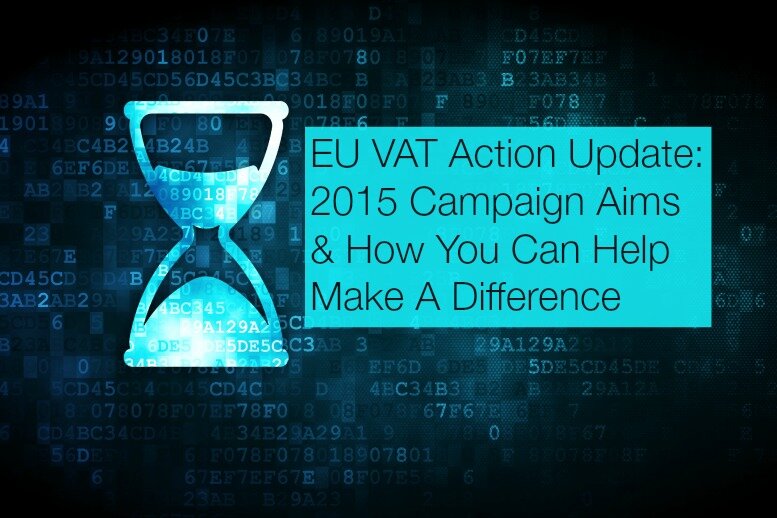Take a few moments to think just how many digital products you use in the course of an ordinary day. As businesses are forced to close or geo-block to avoid the unworkable EU VAT rules, you could lose them all.
Our survey of 2000 micro businesses showed that 27% are having to block sales from outside of their home country and 22% have closed down completely. Most of the rest have had to move to 3rd party platforms (you’ll end up paying much more) or are scrapping digital sales and future launches.
Say goodbye to your favourite phone apps
Your phone alarm wakes you up with that new ringtone which you’ve finally discovered you simply can’t sleep through. Okay, time for breakfast and it’s off to work. Commuting by bus or train? Time to catch up on those podcasts you’ve downloaded, devoted to your particular hobbies and interests. You might pay a tiny subscription, to help with web hosting and other costs, though chances are, they’re free, supported by online advertising.
Start work on your laptop or desktop or tablet and you’ll have a screenful of apps and icons for the tools you need in your particular line of business. Word processing. Scanning and OCR. Fonts. Online thesaurus and dictionaries. Spreadsheets. Accountancy. Video and photo editing. Website design. Online diaries and planners. Computer programme design. Manufacturing design and simulation. Filesharing so you can work on projects with other people no matter where in the world they may be. The list is potentially endless.
You’ve picked them up here and there, able to browse through app stores or maybe heading for specialist sites you’ve had recommended by a colleague until you find the one best suited to your particular needs. Maybe you got these things for free at first, or for 99 pence/cents. There’s every chance you’ve upgraded to some premium, paid-for versions now that you’ve found out how useful they are.
As more businesses hear about the new rules (we estimate that so far under 1% have heard of them), you’re going to find many of your favourite suppliers disappearing – or refusing to sell to you.
And then you’ll lose your anti-virus & malware protection
Something you’ll definitely have is antivirus software but as we all know, every so often, something slips through and embeds itself in your system. Do you need help to deal with the malware? Thankfully there are instantly accessible online tutorials and videos to walk the non-technically skilled among us through getting rid of such things without inadvertently wrecking our computers. But the new EU VAT rules could cause them to disappear.
And it’ll hit your hobbies – hard
Work done for the day? Time to relax with some music? Head for your favourite streaming site or maybe track down the website of that band you found for free and decided you like their stuff enough to happily pay for some downloads so they can make more of it.
How about a good book? You’re delighted to find a blogpost or tweet sharing the news that your favourite author is publishing her backlist as independent ebooks. Oh look, another favourite writer is offering a short story collection on his website. Perhaps you could get them from Amazon but you’ll pay the same price whatever, so you’re happy to buy direct and give the writer a bigger cut. Oh and these ebooks are DRM free so you can enjoy them on all your devices and buy them wherever in the world you’re based.
How about a crossword puzzle? Cryptic or quick? You can find both online. Or maybe you’ve had enough screen time for the day. What about an audio book to listen to while you get on with something else? Enjoying one of your hobbies like knitting or some other handicraft? The choice of online patterns these days is simply fantastic.
Maybe you need to get on with cooking the dinner while you’re listening to your music or story. Time to go online to find a recipe for that thing you bought because it looked so interesting in the supermarket – but which turned out to be more of a challenge once you got it home…
Meantime someone in your household is studying and they’re finding online resources invaluable. They could be at school or college or perhaps they’re improving their skills and knowledge in their own time, just for the love of it, or to improve their job prospects. Come to that, there’s any amount of other training material out there, to help you improve your job-related skills, from technical to interpersonal stuff.
Making plans for the weekend or for a holiday? Time to check out tourist guides, walking guides, cycling guides, pub and restaurant guides. Going further afield? An online translation app could be invaluable if you’re not much good with languages other than your own.
Running a hobby website? Say goodbye to your favourite website themes, plugins, apps, software and even stock photos. And if you’re selling ad space, then even if it’s just a hobby, then you’re into the EU VAT rules mess.
If there’s a big company behind your chosen product, they’ll probably be able to cope. It’ll be a hassle for them, no doubt about it, but they have the resources.
If that business is run by just one person, working on their own? Then it’s unlikely they’ll be able to handle the new rules. Just how many of those resources come under the heading of “automated digital services”. In other words, they’re all now subject to the new rules requiring whoever’s offering them to charge the correct VAT rate where you live.
The administrative burden of trying to figure out, with up to 3 pieces of information, where your customer is and the choosing the correct rate from the EU’s 81 options is enormous. Most small businesses do not have the means to do this.
The people who create these amazing resources, unless they’re a big business with tech support, are more likely to close or to block your country than to be able to comply with the new EU VAT rules.
What does this mean for you, the customer?
Your favourite apps, games, plugins & software will disappear.
Prices will go up.
Choice will go down.
You won’t even be able to get the ‘free stuff’ any more
Websites you’ve been using to get free stuff from may well simply disappear. Because selling online advertising now falls under the digital VAT rules, meaning VATMOSS registration, returns and record keeping, all of which means time and expense.
And many of them use their apps / courses / paid downloads to fund the free stuff. With the new EU VAT rules forcing them to geo-block or drop the paid content, the free stuff will have to go, too. After all they, like you, still have to put food on the table.
Others will still be there but those cheap, entry-level and introductory downloads they used to sell are no longer on offer. Because selling something for 99 pence/cents makes no sense when the seller has to pay a hefty monthly payment processing fee plus 20 pence/cents per transaction. You, the customer, can pay for a premium or personally tailored service – or do without.
You’ll find other sites explaining how sorry they are but they’re not selling outside their home country into other EU member states any more. Geo-blocking is becoming by far the most common way for businesses to escape the VATMOSS fiasco.
Some will offer you the option of ordering the download you want by email, so you’ll get it when they have the time to manually process your order. How convenient is that? Not very, for you the customer, or for the business. We’re already seeing traders who thought that was an option abandon it.
And there’s always the possibility that the site you’re buying from is run by a pirate with a side-line in identity theft…
Imagine having to go to a website and enter a whole lot of personal information which you never used to do, to prove where you live. And they’re going to keep that personal data about you for 10 years. Would you want to hand over details of your bank account? Or would you run? So… who’s going to have access to that data now? Your very reasonable reluctance to do this as a customer means those businesses who’re trying this approach are reporting significant drops in sales.
For some products but by no means all, there are 3rd party marketplaces handling VAT compliance for sellers. Their grip on online trade will become a stranglehold. Get used to only being able to buy what Amazon, Apple and Google decide you’re allowed to buy, on whatever terms they choose to impose. And, ironically, stopping these big businesses from reducing their VAT bills by relocating to cheaper countries was the main reason the new EU VAT rules were introduced – but they’re laughing all the way to the bank as the new rules actually increasetheir market share.
The problems created by these new regulations aren’t just limited to the people most directly affected, whose businesses now face the appalling burdens of compliance. It hits consumers hard, too.
And it’s not just businesses offering solely digital products hit by this but all the ones whose core business is selling physical goods or other services and who have been expanding their operations into digital downloads which now bring in vital income.
Things will only get worse once this is extended to online products and services currently exempt because they require a higher level of personal intervention and interaction than a simple, automated download.
Whatever you’re used to buying online, you’re going to be affected.
Please let your MEPs and other elected representatives know you find this situation unacceptable.
This post owes a tremendous amount to Megan Kerr’s original article looking at the impact of these new regulations on her ordinary day.

